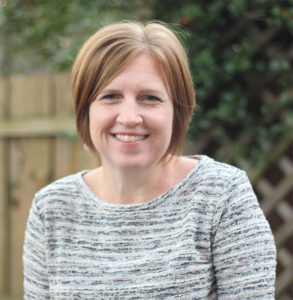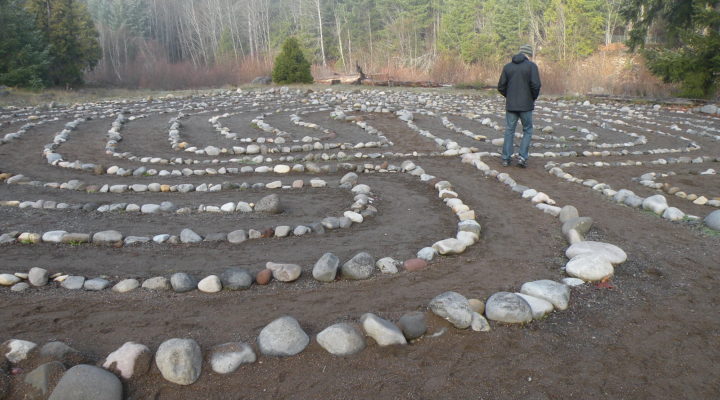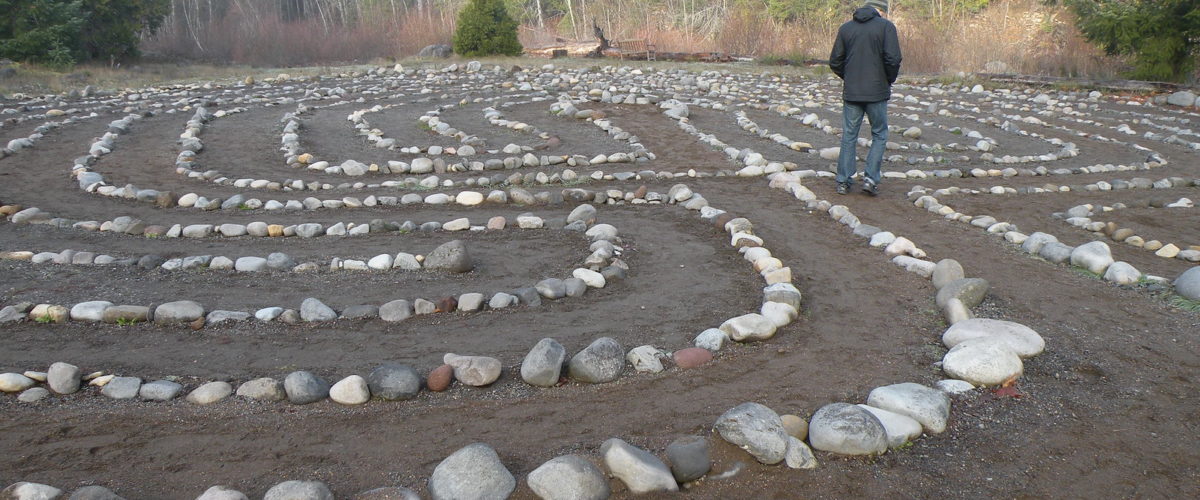The number of religiously unaffiliated Americans has continued to grow, yet many of them are drawn to churches and retreat centers in search of spiritual direction.
Ministers and religious educators say so-called “nones” and other non-Christian seekers are hungry for the meaning, purpose and structure they aren’t finding on the secular market.

Susan Rogers
“We are seeing people ‘on the margins of faith and religion’ engage in Jesus-centered community for connection, guidance, help and healing,” said Susan Rogers, pastor of The Well at Springfield in Jacksonville, Florida.
The congregation was established in 2011 in partnership with the Cooperative Baptist Fellowship of Florida.
“We see folks participating in The Well who do not identify as ‘believers,’ but are hungry to reflect more deeply about God and how they can live from a deeper place,” Rogers said via e-mail.
But it isn’t just the seekers who benefit from their presence in church, she added.

Scott Powell
“They bring fresh questions, perspectives and wisdom to the community and we learn a lot from each other.”
Scott Powell, 25, is one of them. He’s been involved at Rogers’ church since the spring of 2019.
Raised in a secular home but also in Christian schools, the Jacksonville resident said he was drawn to The Well because it offers him a place to ask questions and explore spiritual practices he is curious about.
“I’m trying to figure out what I identify as,” he said.
Powell spoke with Baptist News Global about that journey and what it’s like as a non-Christian involved in a church. His comments are presented here, edited for clarity.
How would you describe yourself religiously or spiritually?
I don’t really identify as Christian, but I do practice Christianity, or some aspects of it. And I participate in a Christian community. I’m curious about the rituals.
You weren’t raised in a church?
On Sundays at The Well, almost everybody grew up in church. That wasn’t the case for me. My parents were anti-organized religion and although I went to Christian schools, I don’t have the deep-rooted Christian theology and belief systems.
So what brought you to The Well?
Part of it was a feeling of being left out of something, but not really knowing what. A lot of Christians I grew up around did seem to have a sense of comfort. As someone who has anxieties and existential fears, that’s something that drew me to community.
I struggled a lot with the idea of an angry creator whose focus is anger not love. I think I have in many ways been attracted to spiritual community to try to work through that.
Also, I grew up loosely around Christian traditions and seeing that Jesus has some things to teach. I’m looking for people engaged in following Jesus.
Who or what is Jesus to you?
I perceive him to be a radical who challenged the empires of his day. I strive to challenge powers on matters of injustice and inequality. I perceive Jesus to be a teacher in regard to social justice, economic justice and putting an end to individual and group bias.
And I am curious about Jesus as the embodiment of the connection of man and divine. I do believe there is divinity in every living being. I am curious how to be more in tune with that. I think Jesus would encourage us to take a little less time talking about him to focus on the divine within us. Along those lines I think he can be a spiritual guide.
What practices have you adopted?
I suppose I don’t know specifically how to answer that. Since I’m involved in community, I suppose I can say I practice community with a Christian group.
What keeps you going back?
I am surrounded by people whose views of God and creator are based more in love and universal salvation. That’s my personal journey – moving on from an angry, hard creator.
And a lot of churches say “come as you are” but I really believe that The Well embodies that. We are human, not perfect. It doesn’t matter if I have doubts that Jesus died for forgiveness of sins, which I do, or believe in God, which I do. But there are atheists who practice spiritual community at The Well. There is a sense of comfort that I don’t have to change who I am, don’t have to fake having certain beliefs to be in community. And the diversity of my beliefs is even welcomed.
What activities have you found to be especially helpful so far?
There is a monthly group where we explore different spiritual practices like contemplative prayer and meditation. And I am on the vision team, which loosely looks at the future vision and course of The Well. We invite questions about what community looks like, what does practicing a spiritual life together look like, and how show up for neighbors.
Do religious controversies give you second thoughts about attending church?
A lot of my friends in my social network are not religious and have very negative perceptions of Christianity, particularly about conservative Christianity. What I struggle with as I practice Christianity is communicating that I do not practice that kind of Christianity. Every time they think of Christianity they think about the persecution of gays. I want to shout “no, no, no, I am thinking about something totally the opposite.” It makes me afraid to talk about God, Jesus, Christianity from fear my liberal friends are going to think I am weird. It all makes me self-conscious and it makes me angry at times, too.


